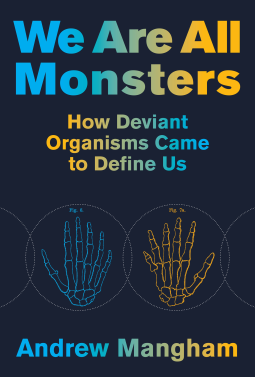
We Are All Monsters
How Deviant Organisms Came to Define Us
by Andrew Mangham
This title was previously available on NetGalley and is now archived.
Send NetGalley books directly to your Kindle or Kindle app
1
To read on a Kindle or Kindle app, please add kindle@netgalley.com as an approved email address to receive files in your Amazon account. Click here for step-by-step instructions.
2
Also find your Kindle email address within your Amazon account, and enter it here.
Pub Date Feb 14 2023 | Archive Date Mar 15 2023
MIT Press | The MIT Press
Talking about this book? Use #WeAreAllMonsters #NetGalley. More hashtag tips!
Description
“Was I then a monster, a blot upon the earth, from which all men fled and whom all men disowned?” In We Are All Monsters, Andrew Mangham offers a fresh interpretation of this question uttered by Frankenstein’s creature in Mary Shelley’s 1818 novel in an expansive exploration of how nineteenth-century literature and science recast the monster as vital to the workings of nature and key to unlocking the knowledge of all life-forms and processes. Even as gothic literature and freak shows exploited an abiding association between abnormal bodies and horror, amazement, or failure, the development of monsters in the ideas and writings of this period showed the world to be dynamic, varied, plentiful, transformative, and creative.
In works ranging from Comte de Buffon’s interrogations of humanity within natural history to Hugo de Vries’s mutation theory, and from Shelley’s artificial man to fin de siècle notions of body difference, Mangham expertly traces a persistent attempt to understand modern subjectivity through a range of biological and imaginary monsters. In a world that hides monstrosity behind theoretical and cultural representations that reinscribe its otherness, this enlightened book shows how innovative nineteenth-century thinkers dismantled the fictive idea of normality and provided a means of thinking about life in ways that check the reflexive tendency to categorize and divide.
Available Editions
| EDITION | Other Format |
| ISBN | 9780262047524 |
| PRICE | $32.95 (USD) |
| PAGES | 344 |



